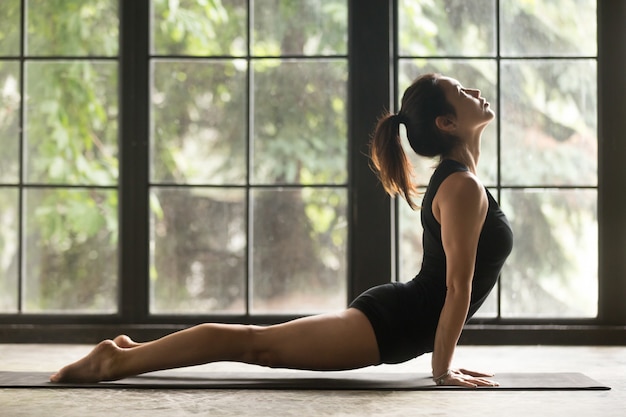
A yoga body isn’t just about being flexible; this ancient practice can also boost memory, heart health, and bone strength, says Anna Magee.
Yoga has become incredibly popular in the UK, with people spending around £790 million annually on classes and mats. Although some new yoga trends might seem unusual, like rage yoga or doing poses on paddle boards, the real benefits of yoga are increasingly supported by scientific research.
Researchers at UCLA discovered that a three-month yoga and meditation course was more effective than memory exercises in reducing age-related brain issues. Another study found yoga could help improve sleep in breast cancer survivors.
When Lucy Edge, a 53-year-old former advertising executive, experienced severe depression, she chose yoga over prescribed anti-depressants. She took a six-month break to study yoga in India, which significantly boosted her happiness and contentment. Lucy has since written three books on yoga and launched Yoga Meds, part of her website Yogaclicks.com, which lists over 300 clinical trials on yoga’s benefits, including for conditions like arthritis, insomnia, and obesity.
Here’s how yoga could benefit your health and how you can get started:
If you’ve only been doing crossword puzzles or Sudoku for memory training, consider incorporating yoga. UCLA’s study compared 12 weeks of memory exercises with a yoga and meditation course for adults over 55. The yoga group showed better improvements in memory, reduced depression and anxiety, and increased stress resilience.
You don’t need to do hours of headstands to benefit. The study participants practiced one hour of Kundalini yoga per week and 20 minutes daily of Kirtan Kriya, a form of meditation involving chanting and hand movements.
Yoga isn’t just good for the brain; it’s great for the heart too. A 2014 review in the European Journal of Preventative Cardiology found that yoga can lower the risk of heart disease as much as conventional exercise like brisk walking. Since stress contributes to heart disease by raising blood pressure and heart rate, reducing stress through yoga can be beneficial.
There’s ample evidence that yoga improves emotional health, which is crucial for those who have had heart problems. It can also help lower blood pressure, cholesterol, and weight—all risk factors for heart disease.
For beginners, a gentle yoga style, such as Hatha or Iyengar, can be a good start. These forms are more accessible and less intense than other styles. Always inform your teacher about any health conditions before starting.
If you’re new to yoga or a seasoned practitioner, choosing the right yoga mat is essential. When selecting a mat, consider its location, weight, and thickness, especially if you suffer from joint pain. A thicker mat offers better cushioning.
Healthista recommends the Elephant Cork Yoga mat from Valka Yoga. Priced at £69.95, it’s eco-friendly, made from organic cork and natural rubber, and offers good joint support. The mat’s design will fit well in any living space and is backed by a 15-day money-back guarantee and a one-year replacement warranty.
Also, think about using a yoga block to help with difficult poses. Cork blocks offer better stability and grip compared to foam blocks.
For those not flexible, different yoga styles like Yin, Restorative, Vinyasa Flow, Iyengar, Anusara, and Yoga Therapy can cater to various needs and levels.
Lucy Edge’s latest book, “Down Dog Billionaire,” is available on Amazon.